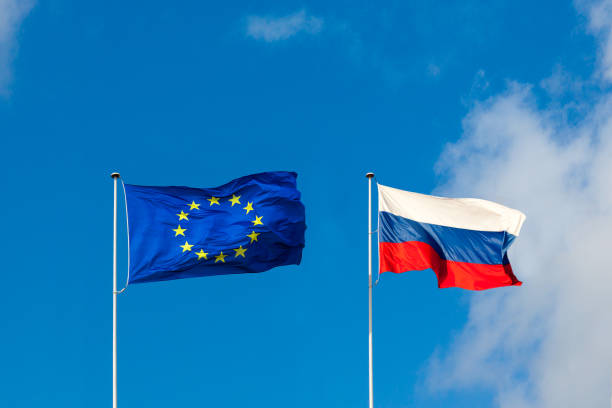The European Union on February 12 adopted a law that would enable it to set aside profits made on frozen Russian central bank assets. This is being viewed as a first step towards using Russian money and assets frozen to be used for reconstructing Ukraine.
The EU and Group of 7 countries have frozen around $323 billion of Russian central bank assets after Moscow’s invasion of Ukraine.
Western officials have debated over the past year on how best to use the funds.
There were suggestions put forth by US officials that the frozen assets could be confiscated, a move many EU officials thought was risky.
About two-thirds of the confiscated assets are in the EU. Belgium’s clearing house Euroclear has the majority of the funds. According to the law, central securities depositories such as Euroclear, would be prohibited from using net profits and keep revenues from the Russian assets separately.
“Decision, in line with the G7 position, clarifies … the legal status of the revenues generated by the CSDs in connection with holding of Russian immobilised assets and sets clear rules for the entities holding them,” said the Council of the EU, in a press release.
Officials believe that around $16.17 billion in profits can be used for rebuilding Ukraine. This comes a week after the EU agreed to allocate $53.89 billion in aid to Kyiv and the US Senate is likely to pass the aid.
Ukraine has welcomed the move. Foreign minister Dmytro Kuleba said on X (formerly Twitter), “We encourage further steps to enable their practical use for Ukraine’s benefit. These steps must be ambitious and prompt.”
Moscow has made its stance clear on the issue earlier saying that any attempt to use frozen Russian assets as collateral to raise funds for Ukraine would be illegal and it would challenge the move in court.
















